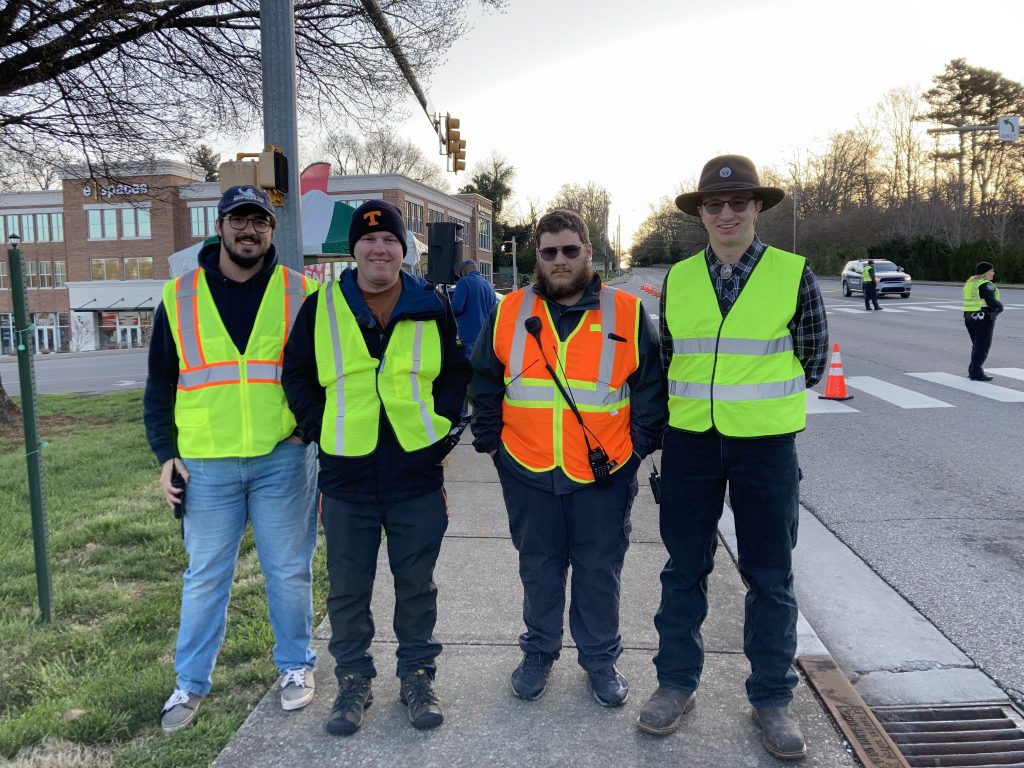
UTARC members (l-r) Robbie Davis, Steven Souther, Jered Baxter, and Cameron Bobo volunteered at the Covenant Health Marathon in Knoxville, providing communications assistance for race organizers.
UT Amateur Radio Club (UTARC) members Robbie Davis, Steven Souther, Jered Baxter, and Cameron Bobo provided volunteer communications assistance to the Covenant Health Knoxville Marathon this past Sunday, March 27. The Covenant Health Knoxville Marathon has grown to become the largest competitive road race in East Tennessee culminating in an exciting finish on the grounds of the historic World’s Fair Park in downtown Knoxville. The event includes the following races: full marathon, half marathon, four-person marathon relay, 5K run, and one-mile fun run for children 12 and under.
Along the marathon’s course, there were water stops for participants and volunteer amateur radio operators provided emergency communications for those sites when needed. The UTARC members were assigned to a water stop called 5 ECHO, located at the eight-mile marker in the marathon.
“We were there to relay information about where runners were and if the water stops are running low on water and Gatorade,” said Davis. “We relayed back to the people in charge about anything our station needed.”
UTARC members stayed in radio communication with the marathon’s control center, which was located at the starting line and acted as a liaison to the race officials.
During the marathon and half marathon, race officials kept track of which participants were in first place at different points along the course in the male, female, and wheelchair divisions. UTARC members radioed this information to the control center from their location.
Members of the student organization also alerted the control center to any needs of the volunteers working at their water stop. They were also prepared to report any injuries or medical emergencies, so the appropriate personnel could be dispatched to their location.
“All four of us enjoyed it; it’s a great experience,” said Davis. “What this event does, too, is prepare us for an emergency. That’s because how we operated at the marathon is exactly how we’d operate in an actual emergency if we are needed. It’s good practice.”